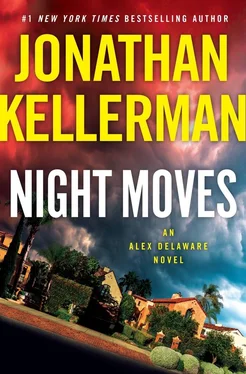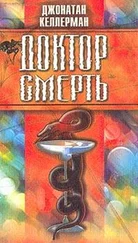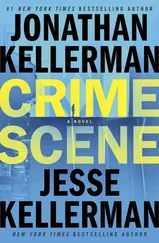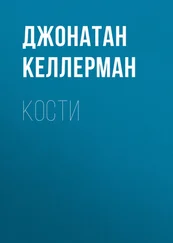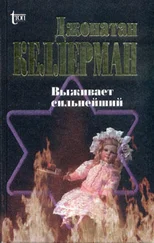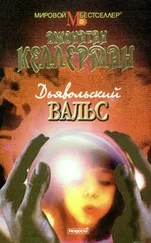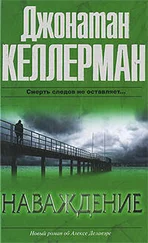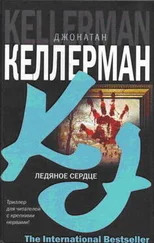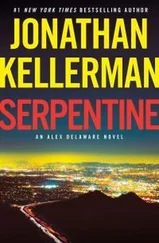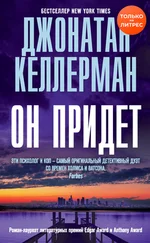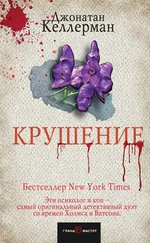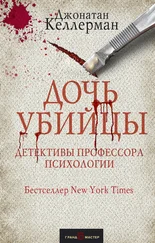But that was only a guess.
At nine thirty-two, headlights appeared from the south, reaching Binchy first. He called: “Not sure but I think so.”
Cars had been coming and going on Marquette at a thin pace. This car turned up the driveway of the McClain house and parked in front of the right-hand garage.
Silver Taurus. Milo pulled out the night-binoculars he’d cadged from a detective assigned to protecting dignitaries.
The Taurus’s driver’s door opened. A smallish man got out and walked to the front door.
Easy gait, no backward glances as he unlocked and stepped in.
I said, “Like he owns the place.”
Milo called Binchy and Reed. “It’s him. Leave your vehicles in place and proceed on foot. You know the rest.”
Within moments, both detectives had snuck around to the back of the house.
No movement from inside the house. Milo waited fifteen minutes, checking his watch every five.
“Okay,” he said. “It’s ten ten, in Asia double numbers are good luck.”
He got out of the car, smoothed his jacket over his holster, and proceeded toward the house.
I found a spot we’d agreed on: shadowy niche of a neighboring apartment building, mostly blocked by a huge rubber tree.
He’d wanted me to stay in the car; I’d negotiated. The tree clinched it: overgrown, a vegetative umbrella.
I watched as he reached the house’s front door. Knocked. Waited a few seconds and knocked again. His big form tightened up as a crack of light appeared between door and jamb.
Talking to someone. Tensing up.
He pulled the door open. Gun out as he rushed in.
Seconds later Binchy and Reed were out front, following him inside.
Guns but no gunfire. I took that as everything going smoothly, waited a few moments, and made my way over.
Paul Mearsheim, newly bearded, his head shaved clean, lay on his back, one arm folded beneath his body.
His mouth was agape, his eyes dull. A black hilt plus an inch of butcher knife blade protruded from his chest.
His throat had been slashed, flesh separating in a wet, ruby grin.
Milo and Binchy and Reed stood around the body. They’d holstered their weapons, and looked stunned. The woman between the young detectives shook and wept and clutched her sides with bloody hands. Each of them maintained a hold on her arm.
Forties, average build, short blond hair, a pleasant face.
Donna Weyland had lost weight since posing with her school district co-workers. She wore blue jeans, a white top, pink running shoes. Everything splotched and speckled with red.
Blood acned the wall behind Mearsheim’s body. Folds in his shirtfront created opportunities for the blood pooling.
Crimson arterial blood. Some of it, commandeered by gravity, trickled over his narrow chest and spread on the floor, purpling old, gray carpeting.
Fresh kill.
Donna Weyland’s hands clenched. She began to hyperventilate.
Milo said, “Breathe slowly.”
She shut her eyes and sucked in air. Began forcing words out between gasps. “He... said... he... was... kill me... I...”
Pointing to a shotgun lying six or so feet from Mearsheim’s right hand. “He... I... had... to...”
Bringing a knife to a gunfight had worked. Somehow.
My brain became a fast-shutter camera.
Sobs racking her body.
But no tears.
Walking around the four of them, I peered at Mearsheim’s corpse.
No way to get a look at the hand pinned under his body but the one I could see bore no defense wounds.
The throat slash had smooth borders.
No hesitation marks. A massive wound that screamed murderous confidence.
Lopsided, beginning with an upward swoop that began at the left side of Mearsheim’s skinny gullet and climbed to just under his right ear.
Right-handed slasher.
Coming from behind.
No sign of a struggle.
The shotgun. Too far to have been dropped by a mortally wounded man.
Placed there.
Donna Weyland was looking at me. Everyone was.
The house had gone silent.
For a split second, her face changed, theatrical terror given way to cold analysis.
A face I’d seen before. Cold-eyed, flat, barely suppressed hostility.
Portrait on a collection of mugshots.
I said, “Hi, Trisha.”
Her shoulders jerked as she resisted reflexively. That elicited Reed and Binchy’s reflexes: gripping her harder.
Milo took his cuffs out.
Like a virus taking hold, cop suspicion had set in and everyone knew it.
Four sets of eyes settled on Donna Weyland a.k.a. Trisha Bowker.
She was inert for a moment, shuffling through a mental Rolodex for the right facial expression.
First came a pout, bizarrely girlish. Even as it settled, she knew it wouldn’t work and switched the channel to a pathetic mewl.
Milo cuffed her. She sagged as if trying to slip the restraints. Reed and Binchy held her fast.
Milo turned his back on her and assessed Mearsheim’s body.
He spieled the Miranda warning, not even trying to sound interested.
With nowhere to go, but it’s either fight or flight. Donna/Trisha was in no position to fight.
“It... was... I’m... so... sorry... please.”
That didn’t work. She spat in Milo’s face.
Once it’s over, some criminals check out mentally. Trisha/Donna cursed and kicked and screamed as Reed and Binchy removed her.
Milo allowed himself some rapid breathing.
When he stopped, new sounds asserted themselves through the thin walls of the cheesy little house.
Low-pitched barks. Muffled but insistent.
What might’ve passed as an asthmatic dog protesting.
Then the noise began to sound human. Binchy came back, saying, “Moe took her in.”
Milo and I were already moving toward the sound. Front of the house, the south side.
The garage.
The space was accessible through an empty service porch that reeked of bug killer and sported small heaps of dead roaches. No bolt on the interior door: a turn lever that Milo’s gloved hand flipped.
Dim garage.
One bare bulb screwed to a socket in the rafters.
Parked side by side, a black Ford pickup and a black Camaro.
A chair was positioned between the vehicles. Moth-eaten love seat from another era.
The figure in the chair bucked and screamed through a duct-taped mouth. Body and limbs were pinioned to the chair by more tape.
The eyes above the gag were flickers of terror.
Male captive, barely able to see through swollen lids, unsure, now, if life had gotten better or worse.
Pipe-stem arms. Stringy hair, blond, matted, greasy. His gray T-shirt was blood-caked. Brown stains on his jeans coexisted with more blood — amoebic blotches of red. A crusted yellow circle marked the concrete near his bare feet where urine had settled and dried. The garage stank of gasoline and cleaning fluid and more insect poison and shit.
Several feet in front of the chair, near the rear bumper of the Camaro, lay a bloody ball-peen hammer.
The captive’s right hand was a mangled blob.
Milo rushed toward him. “Police, it’s okay, it’s okay.” He began removing the tape-gag as the boy in the chair convulsed.
Binchy’s eyes had shifted to a corner of the garage. He pointed. “Oh, Lord.”
A band saw, just beyond the nose of the pickup.
As Cory Thurber’s parched, swollen lips were liberated, he made a gagging sound and drooled and struggled to speak. As Milo began freeing his arms, he managed a whimper that began feebly and continued to lose power.
Barely audible: “Heheh-hehehllllp me!”
Milo said, “It’s okay, son, you’re safe, just hold on.”
Once you know what to look for, collecting evidence is a whole new game.
Within ten hours of Trisha Bowker’s arrest, the earliest link between her and Paul Mearsheim was found. The couple had gotten together nine years ago, when Mearsheim had worked as a computer consultant for a school district in Massachusetts and Bowker had served as a teacher’s aide. Shared amorality had been the relational glue.
Читать дальше
